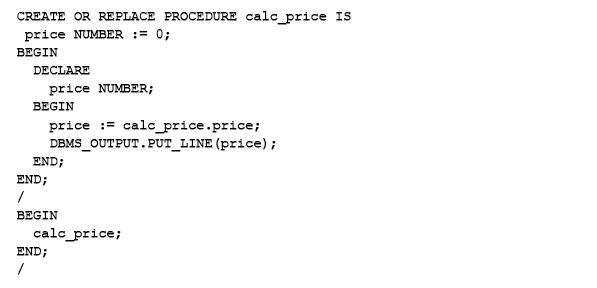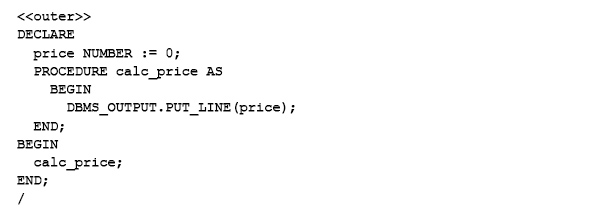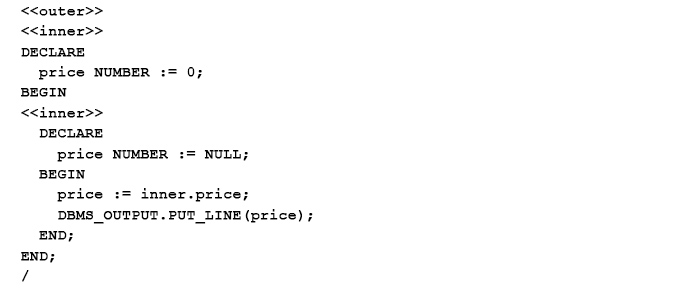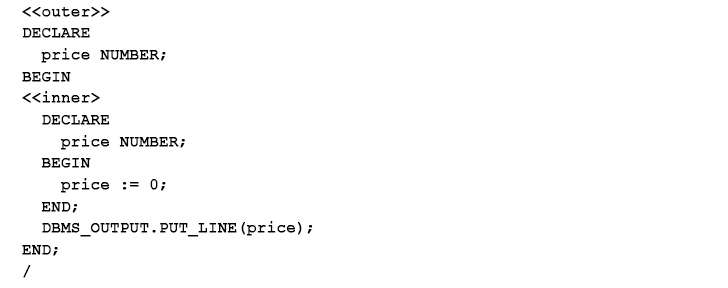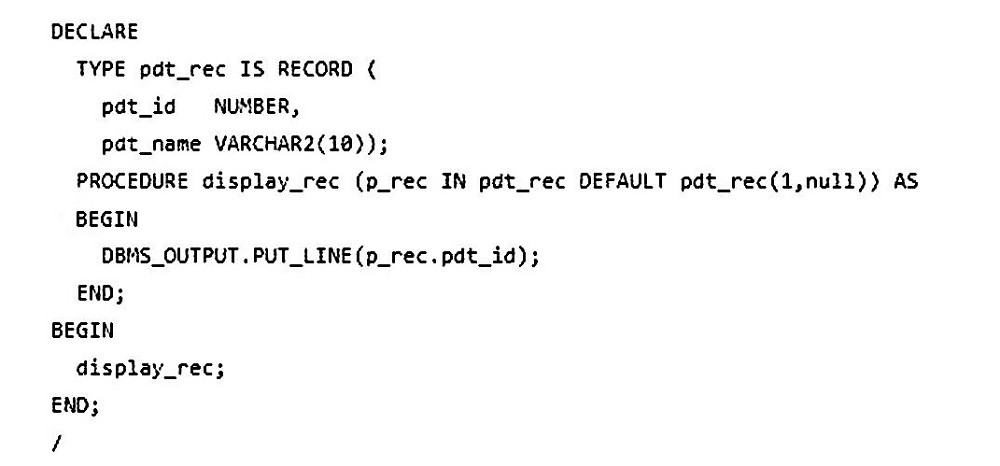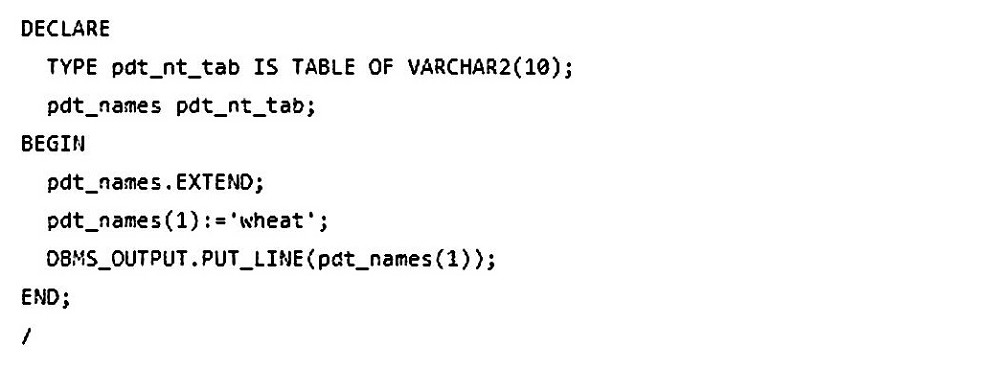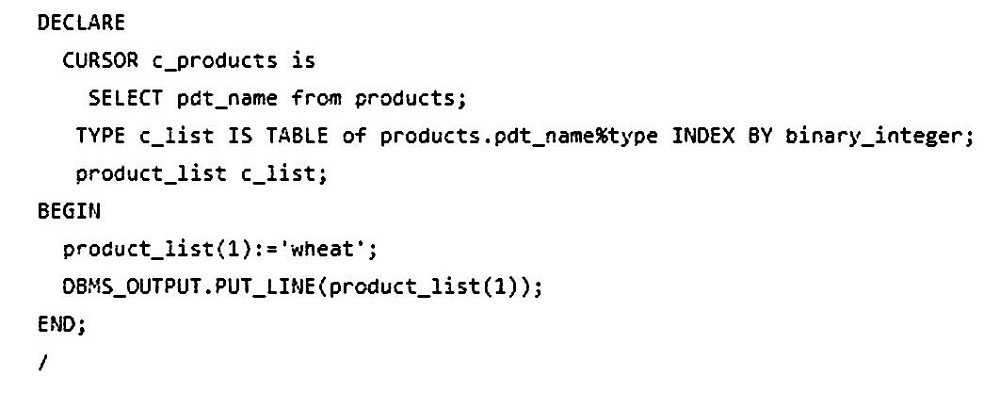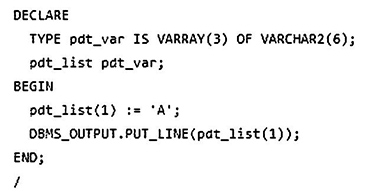Oracle 1z0-149 - Oracle Database 19c: Program with PL/SQL
Which two are true about Conditional Compilation in PL/SQL using $IF, $ELSE, $END, and $ERROR? (Choose two.)
Which code will successfully create a BODILESS PACKAGE to standardize CONSTANTS and EXCEPTIONS declarations?
Which two blocks of code display a numerical zero? (Choose two.)
Which is true about EXIT and CONTINUE statements?
For which three SYSTEM EVENTS can triggers be created? (Choose three.)
Which three statements are true about passing parameters to subprograms? (Choose three.)
Examine this statement which executes successfully:
SQL> SET SERVEROUTPUT ON;
Now, examine this code which is executed:
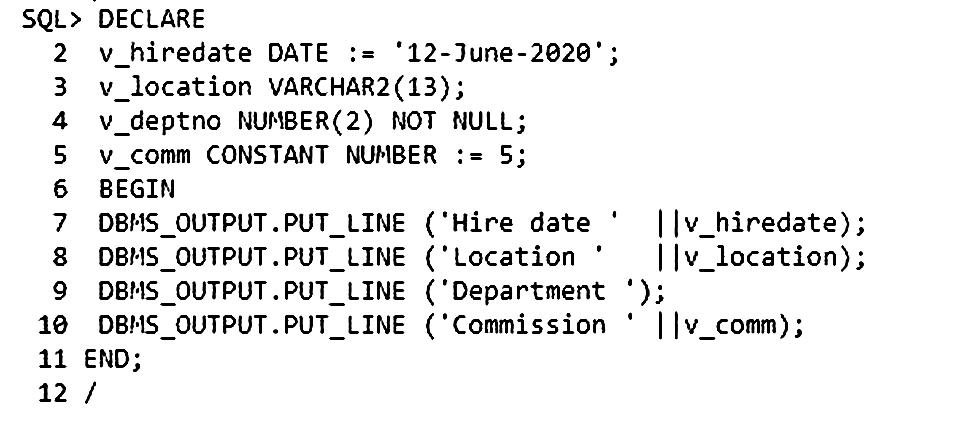
What is true about the result?
Sequence S and table PRODUCTS exist in your schema.
Examine the table description:

Now, examine this block of code:

Which two lines each result in a compilation error? (Choose two.)
The SH schema contains the PRODUCTS table with column PDT_NAME defined as VARCHAR2(10).
Which two blocks of code execute successfully when invoked by user SH? (Choose two.)







